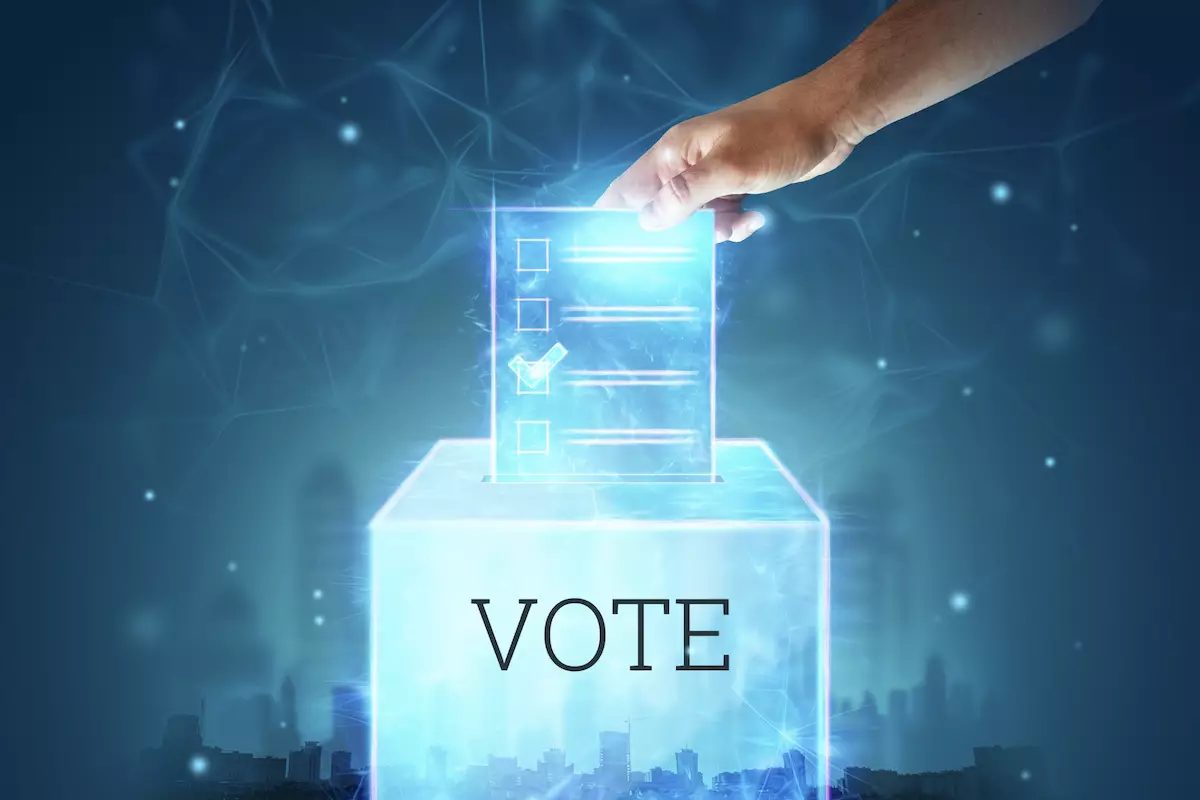In a world where trust in democratic processes is waning, the concept of blockchain voting is generating considerable interest among policymakers, technologists, and citizens alike. This novel technology promises increased transparency, security, and efficiency in electoral processes, potentially transforming how we vote forever. However, the journey from concept to implementation is fraught with challenges that must be addressed to realize its full potential.
At its core, blockchain technology provides a decentralized, immutable ledger that records transactions securely. When applied to voting, each cast ballot could be viewed as a transaction, securely logged and nearly impossible to alter once entered into the system. Proponents argue that this level of security could help restore faith in elections, especially in regions beset by accusations of fraud and manipulation.
Furthermore, blockchain’s transparency is a major selling point. By allowing voters to track their votes in real-time, it empowers citizens to feel confident about the election process. In Romania, for instance, the upcoming 2024 presidential elections are set to implement blockchain technology, enabling voters to observe vote counts live as ballots are verified.
Equally important is accessibility. Traditional voting methods can create barriers for those with disabilities or those living in remote areas. Online voting through blockchain can democratize the electoral process, enabling individuals to cast their votes safely and conveniently from their homes. Additionally, the potential for cost savings is significant; by reducing reliance on physical polling stations and paper ballots, election officials could expedite results while conserving resources.
The proof-of-concept trial for blockchain voting in Zug, Switzerland, serves as a noteworthy example. In 2018, 72 digital ID holders participated in an online consultative vote, demonstrating the feasibility of using blockchain for elections. This pilot not only successfully met most technical requirements but also provided insights that could pave the way for future solutions in decentralized voting.
Romania is taking this further by extending its blockchain capabilities to European standards. The partnership with the European Blockchain Services Infrastructure (EBSI) highlights the potential for cross-border synchronization of voting processes, fostering both harmony and efficiency in democratic practices across nations.
Despite the enthusiasm surrounding blockchain voting, significant hurdles remain. While blockchain technology is considered secure, the broader voting ecosystem is vulnerable to cyber-attacks and manipulations that could occur before votes are even logged on the blockchain. Ensuring the integrity of each vote necessitates that we address how ballots are submitted and secured in the first place.
Privacy represents another complex issue. Voters need assurances that their choices will remain confidential, even while being able to verify that their votes were accurately counted. Striking this balance between accountability and anonymity will be paramount in building trust in blockchain voting systems.
Moreover, the digital divide looms large, particularly in nations grappling with technological infrastructure and literacy. If a power outage, hardware failure, or loss of digital keys occurs, voters may be disenfranchised, raising questions about the reliability of such systems during critical electoral periods.
As innovations continue to develop, concepts like Soulbound Non-Fungible Tokens (SBTs) are beginning to make waves in electoral discussions. These unique digital identifiers could serve as secure means of verifying voter identities, linking them to biometric data to ensure that only eligible individuals can participate. Furthermore, SBTs would help prevent double voting, further enhancing the integrity of the electoral process.
While the prospect of using SBTs to revolutionize voting is enticing, much work lies ahead. The potential privacy and security challenges associated with SBTs remain. Like blockchain, this technology must navigate the complexities of public perception and implementation logistics.
Blockchain voting embodies the dual essence of promise and challenge. Nations like Romania are taking significant steps toward modernizing their electoral systems, but the journey is not without complications. As we contemplate the integration of blockchain and other technologies into voting processes, it is crucial to engage in rigorous testing, thoughtful regulation, and public education campaigns to build trust and ensure widespread access.
The path ahead is dotted with obstacles, including security concerns, logistical barriers, and the necessity for public buy-in. However, with concerted efforts and innovative thinking, blockchain may indeed offer a pathway to a more transparent and accessible democratic process. As we stand on the cusp of this technological revolution, one thing is clear: the future of voting may very well be formatted by the blockchains of our time.

